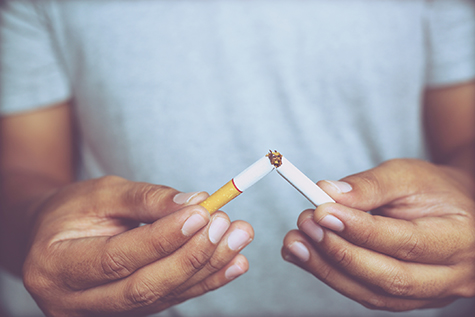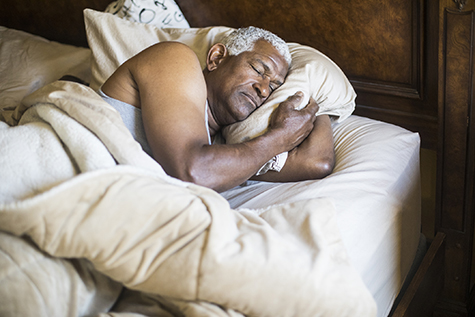These 4 Things Can Help Preserve Your Bone Health

Like many of my patients, you may be wondering what you can do to keep your bones stronger as you get older. If so, you might be interested to learn about new research in four different areas that answer that very question. Let me explain.
Watch the Salt and Save Your Bones
(and Kidneys!)
As an American, you likely eat a lot of salt. Your diet may include more processed foods than it should. You could also be adding salt to your food as you eat. As a result you’re consuming a lot of salt. All this salt can take a toll on your bone strength and your kidney health.
For years, researchers wondered why people who ate high salt diets also had higher levels of osteoporosis and kidney disease. Well, that question was recently answered in a study out of the University of Alberta, Canada [Diets high in sodium can deplete calcium in the body, University of Alberta, Faculty of Medicine and Dentistry, July 2012]. These authors found that a certain molecule governs both salt and calcium levels in the body. Too much salt in the body also depletes calcium.
As your body works to excrete the excess sodium, it draws on calcium from your body to perform the process. As a result, your bones become weaker. In addition, as salt is excreted through your kidneys in urine, all that calcium passing through your kidneys put you at higher risk for developing kidney stones. You can eliminate this double-health whammy result of too much salt by limiting its intake in your diet. These methods can slash excess salt from your diet:
- Cut down/omit processed foods which are high in salt
- Read labels – don’t consume more than 1,200 mg salt per day
- Don’t add salt to your food
Lose the Habit – Cigarette Smoke Breaks Down Bones
Another strategy that can help strengthen your bones is to quit smoking. Smoking was identified as a risk factor for osteoporosis about 20 years ago. It’s associated with several conditions that affect bone health such as:
- Most smokers eat poor diets deficient in calcium and other critical bone health minerals
- Women who smoke produce less estrogen and experience menopause earlier
- Smokers tend to drink more alcohol which weakens bones
- Smokers tend to do less physical activity which weakens bones
Recent research funded by the Cancer and Smoking Related Disease Research Program and the Nebraska Tobacco Settlement Biomedical Research Program revealed another reason why smoking is so bad for bone health. Their study [Smoke-Induced Signal Molecules in Bone Marrow Cells from Altered Low-Density Lipoprotein Receptor-Related Protein 5 Mice. Journal of Proteome Research, 2012] smokers produce excessive amounts of two proteins that trigger a natural body process that break down bone. It’s now clearer that the only way smokers can protect their bones – and the rest of their health – is to quit.
Move More – Even a Little Physical Activity Benefits Bones
Exercise has always been good for building bone health – especially “weight-bearing” exercise, like walking, running, playing basketball, jumping rope, rebounding, yoga, dancing, etc. Bone is a constantly growing tissue that undergoes a lot of changes due to hormone shifts and physical activity levels. The good news is, as new research shows, even a little physical activity can benefit the strength of your bones.
A recent study out of the Center of Excellence in Bone Research of King Abdullaziz University in Saudi Arabia [Physical Activity in Relation to Serum Sclerostin, Insulin-Like Growth Factor-1, and Bone Turnover Markers in Healthy Premenopausal Women: A Cross-Sectional and a Longitudinal Study. Journal of Clinical Endocrinology and Metabolism, 2012] showed that physical training enhances IGF-1 levels that have a positive effect on bone formation. It also lowers sclerostin – a known inhibitor of bone formation. This particular study showed that just 2 hours of physical activity a week in premenopausal women lowered sclerostin levels, boosted IGF-1 levels and showed positive bone-turnover markers. Similar physical activity studies have also been done on post age 40 men as well. The U.S. Department of Health and Human Services show that physical exercise of just 20 minutes, 3-4 times a week, boosts bone mass in men.
Sleep More – Your Bone Strength May Depend On It
Last but certainly not least, new research also shows that sleep deprivation takes a toll on bone strength and health. Researchers at the University of Wisconsin Medical College showed in their study [Chronically inadequate sleep results in abnormal bone formation and abnormal bone marrow in rats, Experimental Biology and Medicine, 2012] that abnormalities like arrest of bone formation and degenerative platelet conditions in the marrow occurred with chronic lack of sleep in lab animals. Researchers concluded that if the same processes occurred in humans, they would be at risk for osteoporosis, poor bone repair, and predisposition to other diseases.
There you have it – four ways to boost your bone health as well as your general, overall health. Remember to include calcium rich foods to optimize your bone nutrition to keep bones strong and help ensure that you stay active and healthy, as you get older.




